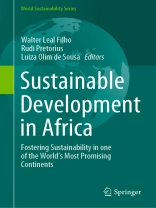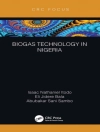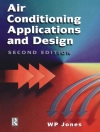This book serves the purpose of documenting and promoting African experiences on sustainable development, which encompasses both, formal and non-formal education. Sustainable development is very important to Africa, but there is a paucity of publication which documents and promotes experiences from African countries. Due to their complexity, the interrelations between social, economic and political factors related to sustainable development, especially at universities, need to be better understood. There is also a real need to showcase successful examples of how African institutions are handling their sustainability challenges.
It is against this background that this book has been produced. It is a truly interdisciplinary publication, useful to scholars, social movements, practitioners and members of governmental agencies and private companies, undertaking research and/or executing projects focusing on sustainability from across Africa.
As African nations strive to pursue the UN Sustainable Development Goals, it is imperative to cater for the information needs seen across the continent and foster the dissemination of experiences and case studies, which may support both, on-going and future efforts. The scope of the book is deliberately kept wide, and we are looking for contributions across the spectrum of sustainable development from business and economics, to arts and fashion, administration, environment, languages and media studies.
قائمة المحتويات
Preface.- Chapter 1. Assessing the Household Preference Level for Sustainable Clean Cooking Energy in Lagos State, Nigeria: Case Study of Biofuel.- Chapter 2. The Challenges and Opportunities for Climate Change Education at Makerere University in Kampala Uganda.- Chapter 3. Sustainable Cropping Intensification and its Role on Profitability of Cassava-Based Farms in a Changing Climate: Evidence from Rivers State, Nigeria.- Chapter 4. COVID-19 PANDEMIC: A THREAT TOWARDS ACHIEVING SUSTAINABLE DEVELOPMENT GOALS ON COMBATING CLIMATE CHANGE AND ITS IMPACTS IN ZIMBABWE’S RURAL COMMUNITIES.- Chapter 5. Experimental study of fire behavior in annually burned humid savanna of West Africa in the context of bush encroachment.- Chapter 6. NEW WEEDING TECHNOLOGY: A SOLUTION FOR IMPROVING THE WELFARE OF RICE PRODUCERS IN CAMEROON.- Chapter 7. Possibilities of translanguaging pedagogy for sustainable education in Africa.- Chapter 8. But we cannot do it all’: Investors’ sustainability tensions andstrategic selectivity in the development of Kenya’s largest geothermal energy plants in Olkaria.- Chapter 9. Fostering university contribution towards sustainable development within an African context: The instrumentality of indigenous knowledge system.- Chapter 10. Gender, agricultural productivity and sustainability in Cameroon.












